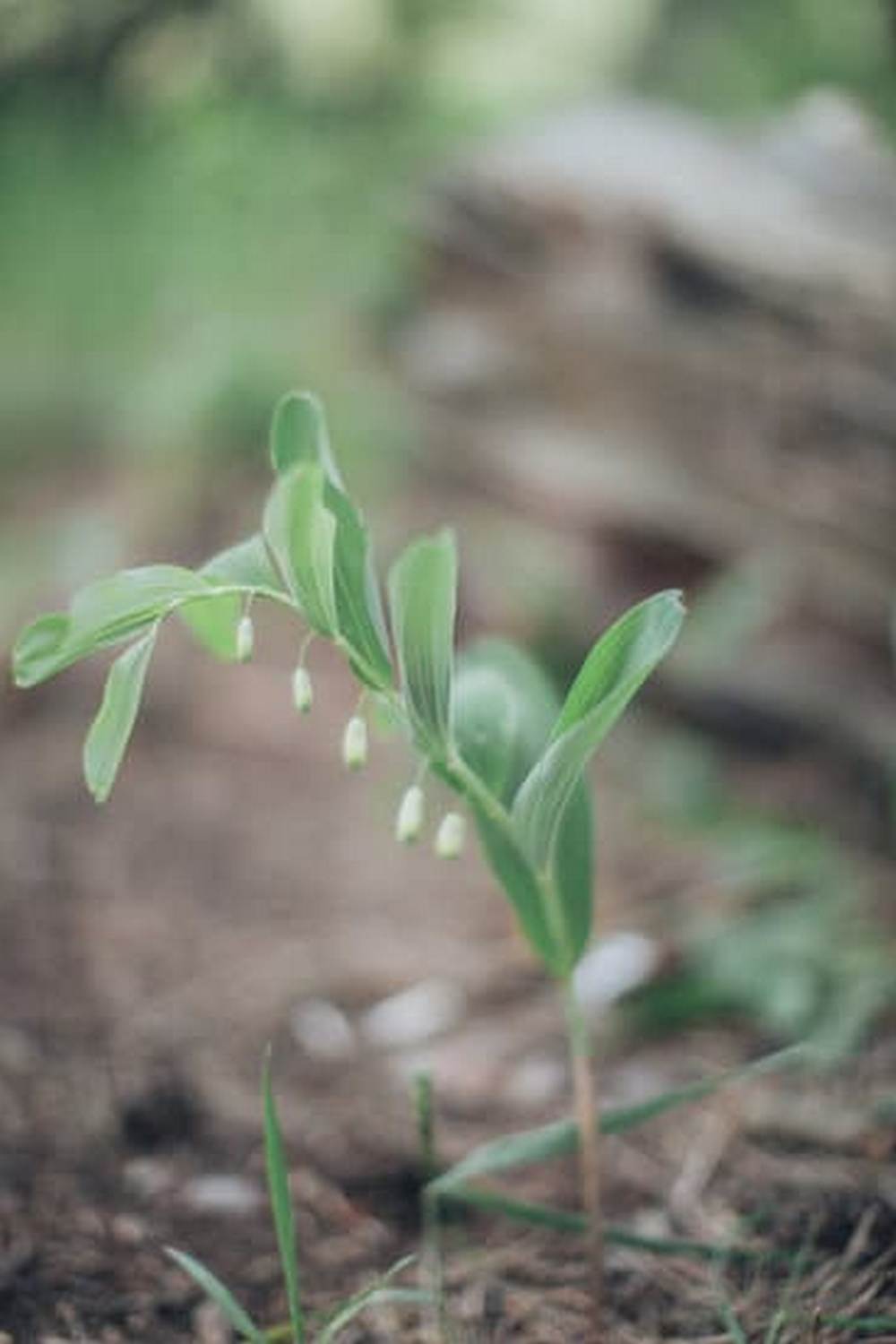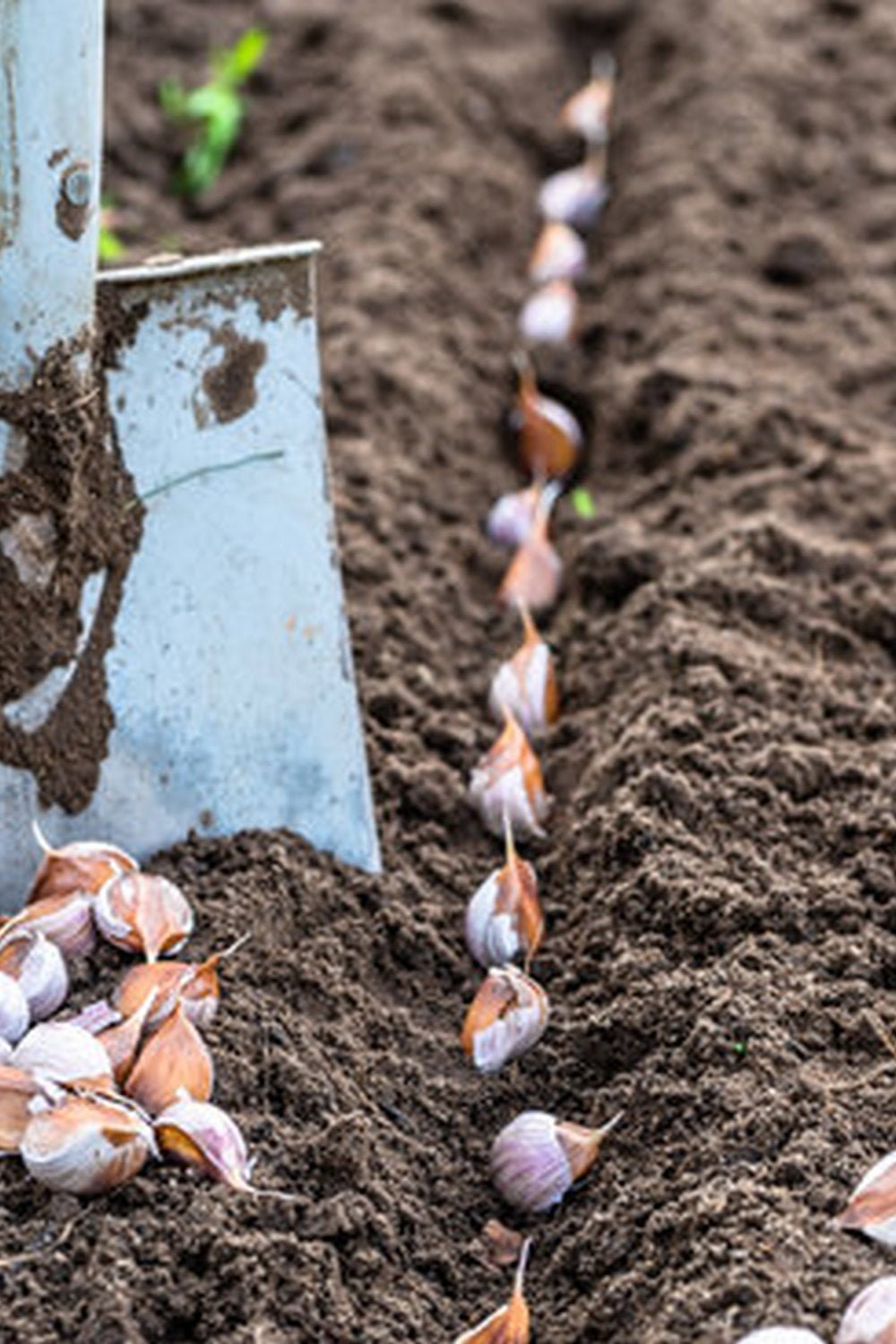Chicken manure is often regarded as one of the best organic fertilizers for vegetable gardens. Its nutrient-rich composition can greatly enhance soil fertility and promote healthy plant growth. In this article, we will explore the various benefits of using chicken manure in vegetable gardens and delve into techniques for its proper preparation and application.
Vegetable gardens require a steady supply of nutrients to thrive and produce bountiful harvests. Chicken manure provides an excellent source of essential nutrients such as nitrogen, phosphorus, and potassium, commonly referred to as NPK. These nutrients are vital for promoting strong root development, vibrant foliage, and abundant flower and fruit production in vegetable plants.
Understanding the composition and nutrient content of chicken manure is crucial to effectively utilize it in vegetable gardens. We will examine the different components that make up chicken manure and how they contribute to its high nutritional value. Additionally, we will explore the ideal balance of these nutrients for optimal plant health.
To ensure safe and effective use, chicken manure must go through a composting or aging process before being added to garden soil. This section will provide insights into various techniques for preparing chicken manure, including composting methods that help eliminate harmful pathogens and reduce nitrogen burn risks. By understanding these techniques, gardeners can harness the full potential of chicken manure while minimizing any potential negative impacts on their crops.
Overall, this article aims to empower vegetable gardeners with knowledge about the benefits and best practices associated with using chicken manure as a fertilizer. By implementing sustainable gardening techniques and utilizing this natural resource properly, gardeners can enjoy healthier soil, increased yields, and contribute to a greener environment.
Understanding Chicken Manure
Chicken manure is a valuable source of nutrients for vegetable gardens, containing high levels of nitrogen, phosphorus, and potassium. Understanding the composition and nutrient content of chicken manure is essential for gardeners to effectively utilize this organic fertilizer.
The composition of chicken manure can vary depending on factors such as the type of poultry, diet, and management practices. On average, chicken manure consists of about 75% water and 25% dry matter. The dry matter contains essential nutrients like nitrogen (N), phosphorus (P), potassium (K), calcium (Ca), magnesium (Mg), sulfur (S), and micronutrients such as iron (Fe) and zinc (Zn).
One significant benefit of chicken manure is its high nitrogen content, making it an excellent source of this essential plant nutrient. Nitrogen promotes vigorous leafy growth in plants, contributing to their overall health and productivity. However, it’s crucial to note that fresh chicken manure has a higher nitrogen content compared to aged or composted manure. As the manure ages or undergoes composting processes, some of the nitrogen may be lost through ammonia volatilization.
In addition to nitrogen, chicken manure also contains substantial amounts of phosphorus and potassium – two other essential nutrients for plant growth. Phosphorus plays a vital role in root development and flowering, while potassium supports overall plant health by enhancing disease resistance and water regulation within the plants. These nutrients are released slowly as the organic matter in the chicken manure breaks down over time.
Understanding the composition and nutrient content of chicken manure is crucial when using it in vegetable gardens. Gardeners should always test their soil before applying any amendments or fertilizers to determine any deficiencies or imbalances in nutrients. This will help guide gardeners in determining how much chicken manure they need to add to reach optimal nutrient levels for their crops.
When incorporating chicken manure into the garden soil, it’s important to mix it thoroughly to ensure even distribution of the nutrients. This can be done by tilling or digging the chicken manure into the top layer of soil. Alternatively, gardeners can also apply a thin layer of chicken manure as a topdressing and water it in. Whichever method is chosen, proper incorporation will help prevent nutrient leaching and maximize the benefits of chicken manure for vegetable gardens.
Preparing Chicken Manure for Use in Vegetable Gardens
Chicken manure is a valuable resource for vegetable gardens due to its high nutrient content, but it must be properly prepared before use. This section will explore the various techniques of composting and aging chicken manure to ensure that it is safe and beneficial for vegetable plants.
Composting is the process of decomposing organic material into a rich, nutrient-dense substance called compost. By composting chicken manure, gardeners can eliminate potential pathogens and reduce the risk of burning plants with raw manure. To start the composting process, it is important to collect fresh chicken manure regularly from coop floors or bedding. It should then be mixed with other organic matter such as straw, leaves, or kitchen scraps to balance the carbon-to-nitrogen ratio.
Aging or curing chicken manure involves allowing it to break down naturally over time before applying it to the vegetable garden. This technique helps reduce the chances of burning plants and allows any harmful bacteria or pathogens in the manure to die off.
To age chicken manure, create a designated area or pile away from the garden where it can decompose undisturbed for at least 6 to 12 months. Regularly turning and moistening the pile will help speed up the aging process.
One common mistake when preparing chicken manure for use in vegetable gardens is applying raw or uncomposted manure directly onto plants. This can lead to nutrient imbalances, plant burn, and even contamination of fresh produce with potentially harmful bacteria. It is crucial to follow proper composting and aging techniques to ensure that chicken manure becomes a safe and beneficial addition to your vegetable garden.
| Composting Techniques | Aging Techniques |
|---|---|
| Collect fresh chicken manure regularly | Create a designated area for aging |
| Mix with other organic matter | Allow the manure to decompose undisturbed for at least 6 to 12 months |
| Balance carbon-to-nitrogen ratio | Regularly turn and moisten the pile to speed up aging process |
Best Practices for Incorporating Chicken Manure into Garden Soil
Testing and Adjusting pH Levels
Before incorporating chicken manure into garden soil, it is important to test the pH levels of both the manure and the existing soil. Chicken manure typically has a high pH level, which can negatively impact plant growth if not properly adjusted. A pH level between 6 and 7 is ideal for most vegetable plants.
If the pH level of the chicken manure is too high, it can be balanced by mixing it with materials that have a lower pH, such as peat moss or composted leaves. On the other hand, if the pH level of the chicken manure is too low, it can be adjusted by adding lime or wood ash.
Applying in Moderation
When incorporating chicken manure into garden soil, it is crucial to use it in moderation to avoid over-fertilization and potential plant damage. The high nutrient content in chicken manure can lead to nutrient imbalances if applied excessively. As a general guideline, it is recommended to mix 1 to 2 inches of well-aged chicken manure into every 4 inches of soil depth.
This ensures a gradual release of nutrients and allows plants to absorb them at their own pace. It is also beneficial to monitor plant growth and adjust the amount of chicken manure accordingly.
Avoiding Direct Contact with Plant Roots
One common mistake when incorporating chicken manure into garden soil is placing it too close to plant roots. Chicken manure should be mixed thoroughly with soil before planting vegetables or used as a side-dressing during the growing season.
Direct contact between fresh chicken manure and plant roots can cause root burn due to its high ammonia content. To prevent this, create a gap between the mixture containing chicken manure and plant roots when digging planting holes or adding fertilizer during cultivation.
By following these best practices for incorporating chicken manure into garden soil, vegetable gardeners can harness the benefits of this powerful organic fertilizer while avoiding pitfalls that could hinder plant growth. Testing and adjusting pH levels, applying in moderation, and avoiding direct contact with plant roots are key steps to ensuring successful utilization of chicken manure in improving the nutrient content and fertility of garden soil.
Incorporating chicken manure into vegetable gardens using these best practices allows for healthier plants, higher yields, and a more sustainable gardening approach.
The Impact of Chicken Manure on Soil Fertility and Plant Growth in Vegetable Gardens
Using chicken manure in vegetable gardens can have a significant impact on soil fertility and plant growth. Chicken manure is known to be a rich source of nutrients, including nitrogen, phosphorus, and potassium, which are essential for plants’ healthy development. When properly applied, chicken manure can improve soil structure, increase nutrient availability, and enhance overall plant growth.
One of the main benefits of using chicken manure in vegetable gardens is its high nitrogen content. Nitrogen is an essential nutrient that promotes leafy green growth and helps plants produce vibrant foliage. It plays a crucial role in chlorophyll production and photosynthesis, allowing plants to convert sunlight into energy. By incorporating chicken manure into the garden soil, gardeners can ensure that their vegetables receive an adequate supply of nitrogen for optimal growth.
In addition to nitrogen, chicken manure also contains significant amounts of phosphorus and potassium. Phosphorus is necessary for root development, flowering, fruiting, and seed production. Potassium contributes to overall plant health by strengthening cell walls and improving disease resistance. The combination of these nutrients from chicken manure provides a balanced diet for vegetables, resulting in healthier plants with increased yields.
| Nutrient | Chicken Manure | Chemical Fertilizer A | Chemical Fertilizer B |
|---|---|---|---|
| Nitrogen (N) | 2-3% | 10% | 20% |
| Phosphorus (P) | 1-2% | 5% | 10% |
| Potassium (K) | 1-2% | 5% | 10% |
It is important to note that while chicken manure provides a lower percentage of nutrients compared to chemical fertilizers A and B, it offers the advantage of organic matter. Organic matter from chicken manure improves soil structure, enhances water retention, and supports beneficial soil microorganisms. This overall improvement in soil health can lead to long-term sustainable growth in vegetable gardens.
Chicken Manure Tea
Making Chicken Manure Tea
One of the most effective ways to utilize chicken manure in vegetable gardens is by making chicken manure tea. This powerful fertilizer can be easily made at home using a few simple steps. To begin, gather fresh or aged chicken manure, a large bucket or container with a lid, and water. It is important to note that using fresh chicken manure may result in an unpleasant odor, so some gardeners prefer to use aged manure for this process.
To make the tea, fill the bucket or container about halfway with the chicken manure. Add enough water to completely cover the manure and stir well. Cover the container with the lid and let it sit for several days, allowing the nutrients from the manure to seep into the water. The aging process typically takes around three to five days.
After the aging process is complete, strain out any solid materials from the liquid mixture using a fine mesh sieve or cheesecloth. The resulting liquid is now your homemade chicken manure tea, rich in essential nutrients for your vegetable plants.
Using Chicken Manure Tea on Vegetable Plants
Once you have prepared your chicken manure tea, it can be used as a fertilizer for your vegetable plants. Before applying the tea, dilute it with water at a ratio of 1:10 (one part tea to ten parts water). This will ensure that the concentration of nutrients in the tea is suitable for plant uptake and reduces the risk of burning or damaging your plants.
To apply the chicken manure tea, pour it directly onto the soil around your vegetable plants, avoiding contact with leaves and stems. The diluted mixture should be gently poured onto the root zone of each plant, ensuring that all areas are covered evenly. Watering immediately after application will help facilitate absorption into the soil.
It’s important not to overuse chicken manure tea or apply it too frequently, as excessive nutrients can cause imbalances in the soil and harm your plants. It is recommended to use chicken manure tea every two to three weeks throughout the growing season for optimal results. Regularly monitoring your plants and observing any signs of nutrient deficiency or excess will help guide you in appropriately adjusting the frequency and dosage of chicken manure tea application.
Benefits of Using Chicken Manure Tea
Chicken manure tea offers a range of benefits to vegetable plants and garden soil. Firstly, it provides a concentrated source of essential macronutrients like nitrogen, phosphorus, and potassium, which are vital for plant growth and development. The slow-release nature of these nutrients in chicken manure tea helps promote long-term soil fertility.
Additionally, chicken manure tea contains a variety of micronutrients that contribute to improved plant health and vitality. These nutrients include calcium, magnesium, iron, and zinc, among others. Regular application of chicken manure tea can enhance overall plant vigor, increase yields, and improve crop quality.
Furthermore, using organic fertilizers like chicken manure tea helps promote sustainable and eco-friendly gardening practices. By utilizing natural waste products instead of synthetic chemical fertilizers, gardeners reduce their environmental impact while maintaining healthy soils for future generations.
Common Mistakes to Avoid when Using Chicken Manure in Vegetable Gardens
Using chicken manure as a fertilizer in vegetable gardens can have numerous benefits, but it’s important to know how to use it correctly to avoid common mistakes that can hinder plant growth and health. Here are some common mistakes to avoid when using chicken manure in your vegetable garden:
- Over-application: One mistake many gardeners make is using too much chicken manure on their plants. While chicken manure is rich in nutrients, excessive application can lead to nutrient imbalances in the soil. This can cause certain nutrients to become unavailable or even toxic to plants. To prevent this, follow the recommended application rates for your specific vegetables and adjust accordingly based on the condition of your soil.
- Fresh Manure Application: Using fresh chicken manure directly on vegetable plants without proper aging or composting is another mistake to avoid. Fresh manure is high in ammonia and other compounds that can burn plants and roots, leading to stunted growth or even death. Before applying chicken manure, it’s important to compost or age it for at least several months to allow these compounds to break down.
- Failure to Test Soil pH: Chicken manure has a tendency to be acidic, which can affect the pH level of the soil over time. Many vegetables prefer a slightly acidic or neutral pH range for optimal growth.
Therefore, it’s crucial to regularly test the pH of your soil and monitor any changes caused by the use of chicken manure. If necessary, you may need to amend your soil with lime or other materials to maintain a suitable pH level.
To ensure maximum benefits from using chicken manure in your vegetable garden while avoiding these common mistakes, it is important not only to follow best practices but also be mindful of your plants’ needs and characteristics throughout the growing season. By properly preparing and applying chicken manure and monitoring its effects on soil fertility and plant health, you can optimize the use of this powerful organic fertilizer for successful and bountiful vegetable gardening.
Alternative Uses for Chicken Manure in Vegetable Gardens
In addition to incorporating chicken manure into garden soil, there are other alternative uses for this nutrient-rich material in garden-beds/” target=”_blank” rel=”follow noopener”>vegetable gardens. Mulching, topdressing, and side-dressing techniques can help maximize the benefits of chicken manure while promoting healthy plant growth and soil fertility.
One alternative use for chicken manure is mulching. Mulching involves spreading a layer of organic material on the surface of the soil around plants. Chicken manure can be used as a mulch by spreading it in a thin layer around the base of vegetables such as tomatoes, peppers, cucumbers, and squash. This helps retain moisture in the soil, suppresses weed growth, and provides nutrients to the plants as the manure breaks down.
Another technique is topdressing, which involves applying a layer of compost or organic material on top of established plants. Using chicken manure as a topdress can provide an additional boost of nutrients to vegetable plants throughout the growing season. To topdress with chicken manure, simply spread a thin layer of aged or composted manure around the base of plants without directly touching the stems or foliage.
Side-dressing is another effective technique that involves applying fertilizer alongside growing vegetables during their active growth phase. Chicken manure can be used as a side-dress fertilizer by creating shallow trenches or furrows next to rows or plantings. Sprinkle or lightly mix chicken manure into these trenches and then cover them with soil. As watering occurs throughout the season, nutrients from the chicken manure will gradually be released into the soil and taken up by plant roots.
By utilizing mulching, topdressing, and side-dressing techniques with chicken manures in vegetable gardens, gardeners can optimize nutrient availability for their plants while simultaneously improving soil health and fertility. These alternative uses not only provide valuable nutrients but also contribute to the overall sustainability and success of the garden. As with any form of fertilizer application, it is essential to follow best practices and avoid excessive or improper use to prevent nutrient imbalances or damage to plants.
Sustainable and Organic Gardening with Chicken Manure
One of the key advantages of using chicken manure in vegetable gardens is the environmental benefits it brings to sustainable and organic gardening practices. Chicken manure is a natural fertilizer that provides essential nutrients to plants while also improving soil quality. By incorporating chicken manure into your vegetable garden, you are practicing environmentally-friendly gardening methods that promote long-term health for both your plants and the planet.
One of the main environmental benefits of using chicken manure in vegetable gardens is its ability to improve soil fertility. Chicken manure is rich in nitrogen, phosphorus, and potassium, which are important nutrients needed for healthy plant growth.
When incorporated into garden soil, chicken manure releases these nutrients slowly over time, providing a natural and continuous source of nourishment for your plants without the need for synthetic fertilizers. This not only reduces chemical runoff that can pollute nearby water sources but also helps promote balanced soil fertility, benefiting both current and future crops.
In addition to its nutrient-rich composition, chicken manure also aids in improving soil structure and water retention. The organic matter in chicken manure enhances soil drainage and increases its ability to hold moisture.
This means that gardeners who use chicken manure can conserve water as less irrigation is needed due to better water retention in the soil. Moreover, by enhancing soil structure through regular use of chicken manure, you promote a healthier root system for your vegetables, which allows them to access nutrients more efficiently.
To maximize the environmental benefits of using chicken manure in your vegetable garden, there are a few tips to keep in mind. Firstly, it’s important to properly compost or age the chicken manure before use. This ensures that any potential pathogens or harmful bacteria are eliminated through heat generated during decomposition. Composting or aging also helps reduce the strong odor associated with fresh chicken manure.
Secondly, it’s crucial to practice proper application techniques when incorporating chicken manure into garden soil. Avoid over-applying the manure, as excessive amounts can lead to imbalances in nutrient levels and negatively affect plant health. It is recommended to follow guidelines and use appropriate quantities based on the size of your vegetable garden.
By embracing sustainable and organic gardening practices with chicken manure, you can reap the environmental benefits of healthier soils, reduced chemical usage, and improved water management. Incorporating chicken manure into your vegetable garden not only supports plant growth but also contributes to a greener and more sustainable future for our planet.
Conclusion
In conclusion, the use of chicken manure in vegetable gardens is a powerful and effective way to enhance the success of your garden. By understanding the composition and nutrient content of chicken manure, you can properly prepare it for use through composting and aging techniques. Incorporating chicken manure into your garden soil using best practices will greatly impact soil fertility and plant growth, leading to bountiful vegetable harvests.
One valuable aspect of chicken manure is its ability to be turned into a nutrient-rich tea. By making and using this powerful fertilizer on your vegetable plants, you can provide them with an extra boost of nutrients that will promote their health and productivity. However, it is important to avoid common mistakes when using chicken manure, such as not properly composting it or applying too much at once.
Furthermore, there are alternative uses for chicken manure in vegetable gardens, such as mulching, topdressing, and side-dressing techniques. These methods can help improve soil structure, conserve moisture, suppress weeds, and provide a slow release of nutrients over time.
Overall, incorporating sustainable and organic gardening practices with the use of chicken manure offers environmental benefits as well. By utilizing this natural fertilizer, you are reducing waste by repurposing poultry droppings and minimizing the need for synthetic fertilizers that can harm the ecosystem.
Frequently Asked Questions
Is chicken manure safe for vegetable gardens?
Yes, chicken manure can be safe and beneficial for vegetable gardens when used correctly. However, it is important to consider a few factors before applying chicken manure as a fertilizer. Fresh chicken manure contains high levels of nitrogen, phosphorus, and potassium, which can burn plants if applied directly without being composted or aged properly.
To ensure safety, it is recommended to compost the chicken manure first to allow it to break down and eliminate any potential pathogens or harmful bacteria. Composting for at least six months can help reduce the chances of burning plants and ensure that the nutrients are more readily available for uptake by the vegetables.
What vegetables do not like chicken manure fertilizer?
While chicken manure is generally beneficial for vegetable gardens, there are a few vegetables that might not thrive with this type of fertilizer. Leafy greens such as lettuce and spinach prefer less nitrogen-rich soil, so excessive amounts of fresh or uncomposted chicken manure can lead to an overabundance of nitrogen, resulting in poor growth and potentially bitter-tasting leaves.
Additionally, root crops like carrots and radishes may become forked or misshapen if grown in soil with an abundance of fresh chicken manure since they prefer a looser soil structure. It is advisable to use caution and apply composted or aged chicken manure sparingly on these specific vegetables.
How long does chicken manure need to sit before using in garden?
The duration for which chicken manure needs to sit before using it in the garden depends on whether you choose to compost or age it. Composting chicken manure helps break down organic matter faster while creating a nutrient-rich product that is safe for vegetable gardens.
For proper composting, you should aim for about six months before using the composted material in your garden beds. During this period, regular turning and monitoring the temperature within the pile can help speed up decomposition while ensuring any potential harmful pathogens are destroyed.

If you’re looking to get into vegetable gardening, or are just looking for some tips on how to make your current garden better, then you’ve come to the right place! My name is Ethel and I have been gardening for years. In this blog, I’m going to share with you some of my best tips on how to create a successful vegetable garden.





